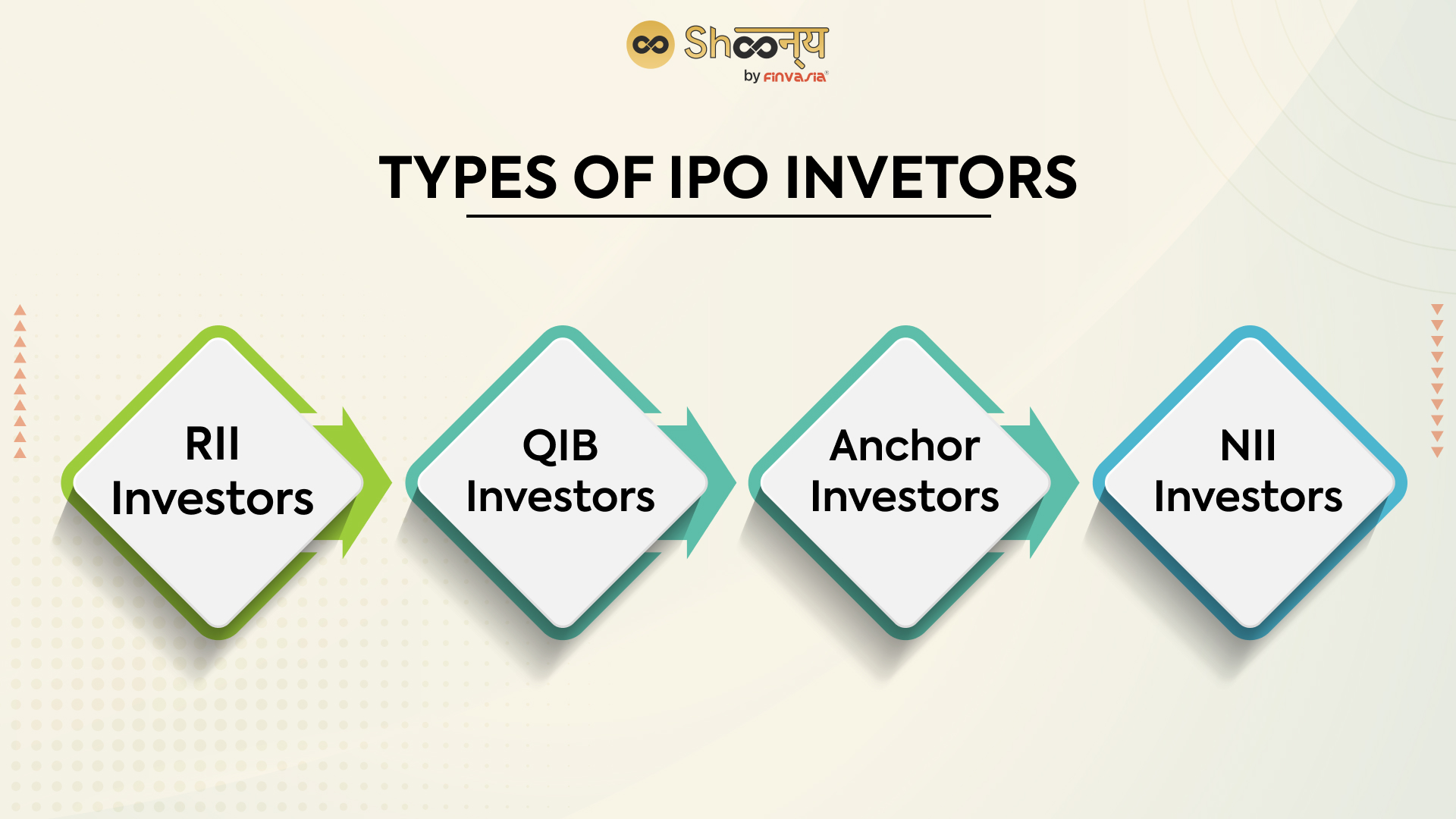Different types of IPO Investors

Stock market investors pay attention when an initial public offering (IPO) takes place because it is a fantastic opportunity to invest in a reliable firm looking to raise money. Initial public offerings (IPOs) by dependable, successful companies benefit investors and companies.
For the IPO subscription, several slots are available for various investors. Each category is limited to a certain number of shares, or percentage, of the total number the firm wishes to list. Let’s look at RII, NII, and QIB differences- different categories of IPO.
Types of IPO Investors
- RII Investors
Retail investors are individuals, NRIs, or HUFs who apply for shares through the book-building procedure. Their maximum application is Rs. 2 lakh. They have little purchasing power compared to institutional investors and pay high trading commissions and fees. However, these taxes can be waived off online.
- QIB Investors
To raise the required funds as an IPO approach, underwriters sell substantial volumes of stocks at a profit to investors. In addition, businesses that intend to allocate more than 50% of their stocks to QIBs must adhere to a 90-day lock-in duration mandated by the SEBI.
Mutual funds, commercial banks, public financial institutions, and overseas portfolio investors, among others, can submit applications under the QIB category.

- Anchor Investors
Anchor investors are those QIB/QII investors who submit applications for more than ten crore shares. As the name suggests, this relates to shareholders who are required to buy shares at a specific price to inspire confidence in other shareholders. So, they create market demand for the initial public offering (IPO). Nevertheless, the exclusive fixed price structure is only available to anchor investors.
- NII Investors
Non-institutional investors or non-SEBI investors can apply for shares without registering with SEBI. High-net-worth individuals (HNIs) have a single investment totalling more than Rs. 2 lakh. A business that wishes to subscribe for even more than two lakhs should also consult with the NIIs. Irrespective of how well the IPO performs, investors still receive their shares.
In conclusion, residents of India, HUFS, eligible NRIs, businesses, scientific inpstitutes, corporate societies, organisations, and trusts are all included in the NII category.
Final Words
These are the four types of investors of IPO in capital markets. After knowing the difference between RII, NII, QIB and Anchor investors, you should know which investor domain you fall into.
To invest in IPOs, the first thing you’d need is a Demat account. To open a Demat account with zero commissions, try the Shoonya app. It has access to more than 100 technical indicators that analyse, indicate, and give the best match for investors and help you make wise decisions.








